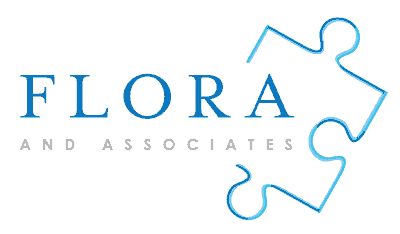How Therapy Can Help You Break Generational Patterns of Trauma
Introduction: The Hidden Impact of Generational Trauma
When we think about trauma, we often picture a single painful event such as an accident, a loss, or a crisis. But trauma can also be passed down quietly, across generations. Known as generational trauma, these emotional patterns are often inherited through behaviors, beliefs, and unspoken rules within families.
At Flora and Associates in Sparta, New Jersey, we work with individuals and families to help them recognize and break free from these inherited cycles. Therapy is a powerful tool for identifying the emotional wounds that have been carried for decades and learning how to stop them from continuing.
You are not responsible for the pain that was passed down to you. But you do have the power to heal and to create something different.
What Is Generational Trauma?
Generational trauma, also called intergenerational trauma, occurs when the effects of trauma experienced by one generation are passed on to the next. This can happen through parenting styles, emotional responses, coping mechanisms, family dynamics, and even silence around painful experiences.
Examples of generational trauma include:
- Families with a history of abuse or neglect
- Survivors of war, poverty, forced migration, or systemic racism
- Households where addiction, violence, or mental illness were normalized
- Unresolved grief or emotional suppression passed down through generations
Children raised in these environments often absorb emotional messages like:
- “We don’t talk about our problems.”
- “You have to be strong. Emotions are weakness.”
- “Love has to be earned.”
Without intervention, these patterns continue to influence how we relate to ourselves, others, and the world, often without realizing it.
Signs You May Be Experiencing Generational Trauma
You do not need to know your entire family history to be affected by generational trauma. Sometimes it shows up as subtle emotional reactions or beliefs that feel hard to explain.
Common signs include:
- A persistent sense of shame or guilt
- Difficulty setting boundaries
- Struggles with emotional regulation
- Chronic anxiety or hypervigilance
- People-pleasing or fear of conflict
- Fear of abandonment or inability to trust
- Repeating unhealthy relationship patterns
- Feeling responsible for other people’s emotions
These patterns often emerge in adulthood, especially during stressful situations like parenting, relationships, or major life changes. Therapy can help you explore where these reactions come from and teach you how to respond with awareness, compassion, and choice.
How Therapy Helps Break the Cycle
Therapy provides a safe space to explore emotional patterns that were likely learned, not chosen. Through this process, you begin to separate your story from the one you inherited and take steps toward healing.
At Flora and Associates, we offer trauma-informed therapy that helps individuals:
- Recognize and name inherited emotional patterns
- Understand how trauma affects the nervous system and brain
- Develop coping mechanisms that promote emotional safety
- Learn tools for emotional regulation and communication
- Build healthier relationships with themselves and others
- Reparent themselves with empathy, strength, and compassion
Therapy is not about blaming previous generations. It is about becoming aware of what was passed down and consciously deciding what continues and what ends with you.
The Role of Emotional Awareness and Regulation
One of the most important skills in breaking generational trauma is emotional regulation. When you can identify how you are feeling and respond without reacting impulsively, you stop the automatic cycle from repeating.
In trauma-informed therapy, you learn how to:
- Understand the connection between thoughts, emotions, and behaviors
- Notice triggers and how they show up in your body
- Use grounding techniques to stay present
- Express emotions in healthy, productive ways
- Set boundaries without guilt or fear
When emotional regulation is modeled consistently, whether with a partner, child, or parent, it creates a ripple effect that encourages others to do the same. This modeling becomes a living example of what it means to navigate difficult emotions with patience and awareness. Over time, these skills replace reactive patterns with intentional, healthy responses that foster emotional safety and long-term healing.
These foundational tools support a more positive emotional state and contribute to stronger, healthier relationships across generations.
Breaking the Cycle in Parenthood
Many people begin therapy when they become parents. That’s often when old wounds resurface, especially if they want to raise their children differently than they were raised.
Therapy can support parents by helping them:
- Respond instead of react when feeling overwhelmed
- Teach their children emotional intelligence and self-worth
- Create a home where it is safe to feel and express emotions
- Stop patterns like yelling, controlling behavior, or emotional avoidance
- Model healthy communication and emotional resilience
By choosing to do this work, you are not just helping yourself. You are creating a new legacy for your children, one built on healing, honesty, and connection.
Generational Healing for the Whole Family
In some cases, therapy can include partners, siblings, or parents. These sessions create opportunities for:
- Open conversations that were never possible before
- Clarifying misunderstandings or unspoken expectations
- Repairing emotional wounds with empathy and care
- Building a stronger foundation for long-term family connection
Even if not everyone in the family participates, individual healing can still create a powerful ripple effect. As you become more grounded and self-aware, the people around you often begin to shift as well.
Therapy encourages the creation of emotionally safe spaces in everyday life—places where connection, honesty, and growth are possible, even in difficult moments.
You Are Not Broken You Are Becoming Whole
If you have inherited pain or trauma, it is not a reflection of your weakness. It is a reflection of your strength and resilience. You are here. You are asking questions. And you are doing the courageous work of changing your story.
Therapy helps you come home to yourself. It teaches you how to hold the past with compassion while stepping confidently into the future. You do not have to repeat what came before. You get to write a new ending.
Healing generational trauma is not a quick fix. It requires courage, curiosity, and commitment. But it is one of the most empowering choices you can make. Each step you take breaks ground for a new emotional legacy. One rooted in truth, self-awareness, and the ability to love and connect more fully.
Conclusion: You Can Break the Cycle
Generational trauma may run in your family, but healing can begin with you. You have the strength to look inward, the courage to feel deeply, and the wisdom to choose a new path.
At Flora and Associates, we are honored to support people on this meaningful journey. Whether you are unpacking childhood wounds, learning to regulate emotions, or trying to raise emotionally healthy children, therapy offers insight, tools, and a safe place to grow.
Take the First Step Toward Healing
You deserve to feel safe, supported, and empowered. Your story does not end with what was handed down. You have the power to change the narrative, for yourself and for the generations that follow.
Schedule an appointment today and begin the work of healing your past, strengthening your present, and building a future rooted in connection and resilience.

